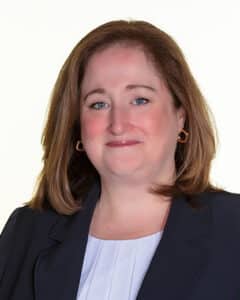MSC Industrial Supply Co. announced Thursday that president and chief operating officer Martina McIsaac will succeed Erik Gershwind as CEO on January 1, following his planned retirement. Gershwind, who has led the company since 2012, will remain on the board as non-executive vice chair.
The board said the transition reflects MSC’s long-standing approach to succession planning and leadership development. McIsaac, who joined MSC in 2022 and became president and COO in 2024, will also join the board when she assumes the top role.
Steven Paladino, lead independent director, said that Gershwind “shaped the company’s direction and growth path, leading MSC’s transformation from a spot-buy supplier into a mission-critical partner on the plant floor of industrial customers.”

Board chair Mitchell Jacobson added that the board has “tremendous confidence” in McIsaac, noting her “track record of operational execution” and strong relationships with customers and suppliers.
Gershwind told analysts on the company’s earnings call that the transition continues a deliberate leadership tradition.
“It has been an honor and a privilege to serve as MSC’s leader for the last one and a half decades,” he said. “Succession planning and leadership development have been pillars of MSC’s values since its inception over eight decades ago.”
The leadership news came alongside fiscal 2025 fourth-quarter results that showed improving sales and earnings trends. MSC reported net sales of $978.2 million, up 2.7 % year over year. Adjusted operating income was $90.3 million, or 9.2 % of sales.
Gershwind said the improvement reflected stronger core-customer performance and continued gains in MSC’s high-touch solutions business.
“Our high-touch solutions, including vending and implant, continue the strong track record that we’ve seen all year long,” he said. “We’ve begun to see our core-customer average daily sales growth rate inflect and turn positive.”
Average daily sales grew 2.7 % in the quarter, with public-sector sales up 8.5 % and core-customer sales up 4.1 %.
Gross margin declined to 40.4 % from 41 % a year earlier, which Gershwind attributed to higher costs linked to new import tariffs.
“Tariffs have moved from a possibility to a reality as we’re now experiencing meaningful price inflation across many areas of the business,” he said.
Interim chief financial officer Gregory Clark said full-year net sales fell 1.3 % to $3.77 billion, largely because of softer first-half demand and a slight currency headwind. Adjusted operating margin declined to 8.6 %, down 230 basis points.
McIsaac said on the call that vending installations grew 10 % year over year to more than 29,600 machines, while implant programs rose 20 % to 411. Sales through both channels each represented one-fifth of company revenue.
She said MSC’s upgraded website and enhanced marketing programs contributed to renewed digital sales growth in the quarter.
“In the fourth quarter, average daily sales on the web turned positive year over year,” McIsaac said, citing improvements in direct traffic and conversion rates following site-search and checkout updates.
MSC expects first-quarter fiscal 2026 daily-sales growth of 3.5% to 4.5 %.
The company plans $100 million to $110 million in capital spending, focused on technology and vending expansion.
Gershwind said MSC enters fiscal 2026 positioned for operating-margin recovery and continued progress on its cost-to-serve and productivity goals.
“We’re poised for operating-margin expansion once again,” he said.
McIsaac will oversee that effort as she assumes leadership in January.
“Over the past three years, I’ve had the privilege of working alongside an exceptional team,” she said. “I’m energized by the opportunities ahead to accelerate growth, build on our foundation, and fulfill our mission to be the best industrial distributor for our associates, customers, suppliers, and shareholders.”


